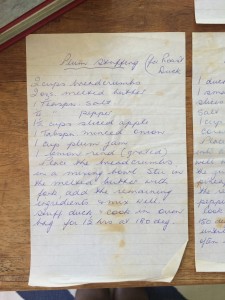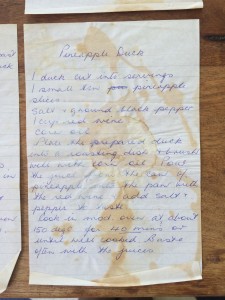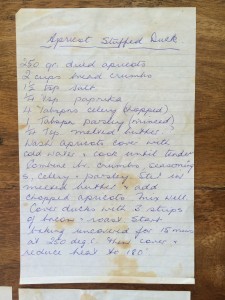So I went to a boarding school in New Zealand, and the boarding schools are modeled on the English boarding schools, because new Zealand is a commonwealth country, which means it’s part of England, or ruled by England basically, and New Zealand still recognizes the Queen of England as the Queen of New Zealand. And so, because New Zealand was colonized by the British, a lot of our traditions and customs are very distinctly british, and the concept of the boarding school transferred from Britain to New Zealand. And it fit in very well with the New Zealand way, because a lot of the people lived in the country, and therefore the kids would go off to boarding school when it came time to go to high school because, like myself, we lived too far away from town, and it would just be too big of a deal to go out every day. And so a lot of the customs and practices I had at my boarding school had their historic roots in England. Like for example, one which was not very nice and goes back to kind of the really tough days of English boarding schools was, I dunno if you’ve heard of the gauntlet? So my school was called Fielding Agricultural High School, and there were two boys boarding houses, the one that didn’t have windows was called Rangatani house, and then the one that did have windows was called Schoolhouse. And then the girls hostel was called Metataihee house.
Why did one of the houses not have windows?
To make the boys tough, I don’t know. And so there were elements of New Zealand that were woven in, so the names are all Maori names, but the traditions were very British. And most of the kids that went to boarding school, like in England, were the sons and daughters of farmers. And in my case my dad didn’t own the farm, so the farm payed for all of us kids to go to boarding school, as part of my dad’s package.
But the gauntlet, which was practiced in the boys’ boarding houses, it’s now banned by the way, but it was a form of punishment where, if a boy had done something wrong, they would create two lines of boys and the kid used to have to run down the middle and the kids could kick and punch him. And often they’d come out the other end, like, semi-unconscious. It was horrible. That was one of the practices, and when I was at school they still did it.
That seems like a pretty severe punishment, what would they have to do to deserve that? What kind of things would get you in that much trouble?
Maybe they got caught sealing something? Of one of their buddies? That wasn’t very common, but I’m trying to think of something that would… Something more sort of serious. And this kind of activity wasn’t something the teachers – the teachers knew about it, but – what they called the schoolmaster, they knew it went on, but they didn’t stop it. So it was kids punishing other kids, so the sorts of other things might be…I dunno maybe they just were smart, you know, mouthy? And it would be one of the preficts would decide, so if you were the equivalent of maybe a junior or a senior in American high school, like in your last two years, that’s what the preficts were. So there’d be a head boy, and a head girl, and I used to be the head girl of the boarding house, and then there’d be other preficts, and the preficts would dish out the punishments to the kids. It could be for a range of things, but if a prefict decided they’d done something, the most serious form of punishment they would call would be the gauntlet, but it only happened to the boys, not the girls.
With the girls, I’m trying to think, some of these things are coming back to me. With the girls, some of the things we would do is, the preficts… I mean one day one of the girls called me into her room and just said to me “kiss my shoes,” and I said no. And she’s like “kiss my shoes” and I said no, I’m not gonna do that. And I was a third former, and she gave me two days. And a day is a form of punishment, and one day would mean that you would have to…and the word day came from England, English boarding school, and that means a day that you cant do the stuff that you would normally do after school, you’ve gotta do like, do chores and labor so to speak. And so I’d have to weed the garden instead of being able to go downtown after school.
It would almost be like food rationing in the morning, like there would be enough pieces of toast for like one and a half slices each, and we ate all our meals with the boys in what’s called Refectory, and you’d have duties so sometimes you’d have to stay to help do the dishes.
Oh so after lights out, in the first year you slept in a dormitory with other kids, and as you got more senior you’d start sharing a room, and then eventually if you became a prefict you’d have your own room. And again that’s part of, it’s like a hierarchy system that is again very British. So after lights out, we’d have torches, flashlights, under our pillows, and we’d talk, but you couldn’t talk to loud because up the hallway was the house mistress, which was usually an unmarried woman, either younger or older, that would be in charge and if she could hear you laughing and talking… I remember we had one lady once that, she would walk in and say “who was talking” and no one would say anything, it was like you didn’t wanna snitch on who it was. And so she’d line us all up out against the hallway and make us stand for 15 minutes until someone said it was me. She would just come in and get us all up and make us stand.
And we used to do “prep,” which was two hours of study every night, from 7 til 9, which is short for preparatory, like preparatory schools, even if you didn’t have any work you’d write to family, read a book, do anything, but you had to be silent for two hours. You were not allowed to talk.
Oh! We used to sandwich beds.
What’s that?
That’s like, it’s also known as apple pie-ing a bed, where you know, you’ve got the bottom sheet which is usually a fitted sheet, and then you have a top sheet. So we’d take the top sheet and we would tuck it around so it looked like the bottom sheet and then you’d turn it in half, so you would go to get in the bed, and your feet would only go halfway down the bed, cause the top sheet’s turned in half. So you turned the sheet up like an apple pie. Oh, and we’d put salt in their bed as well.
Why?
Because that was a ritual – third formers on their first night, all the preficts would salt their bed, just because. Because they’re third formers, that means like first year.
ANALYSIS:
Children or young adults attend boarding school at a transitory, liminal time in their lives. It is a time of going away from the safety and comfort of one’s family, being in a completely new environment with new people, rules, customs, social order, expectations, etc. These punishments and initiations establish a hierarchy, and a way of separating the ‘new’ kids from the ‘old’ kids, the people that are in the group versus the people that are out of it. You have to work your way to the top, you have to go through the same tortures and pranks that the people above you went through, in order to attain that status and respect that the older kids have achieved. It’s a way of keeping social order, as well as introducing new students to how things are done in this new culture.



